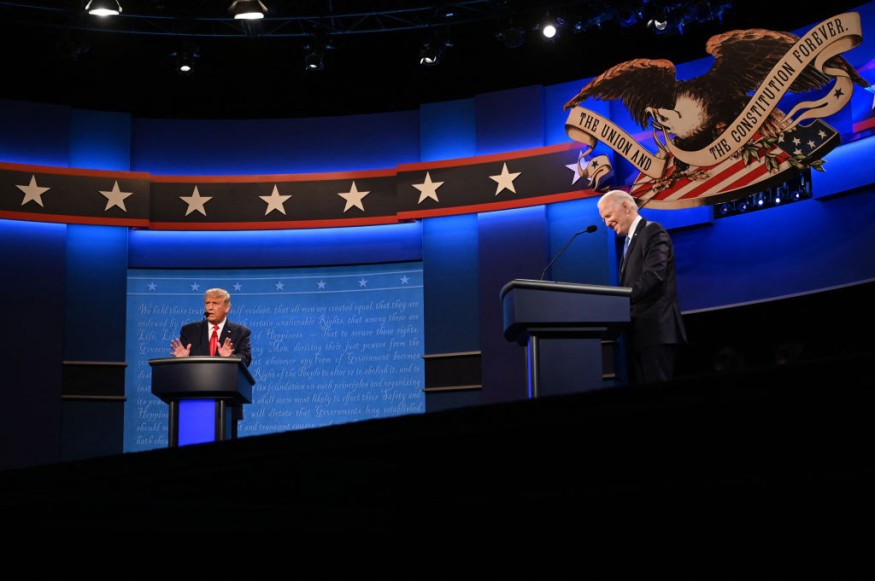Joe Biden, Donald Trump Agree to 2 Presidential Debates in June and September

After months of sidestepping the issue, both former President Donald Trump and President Joe Biden swiftly agreed to debate terms on Wednesday, marking a potential collision course for high-stakes confrontations in late June and mid-September.
Responding to Trump's open invitation for debate anytime, anywhere, Biden accepted the challenge, albeit with certain conditions outlined in a letter to the Commission on Presidential Debates (CPD), Politico reports.
These conditions shed light on the constraints Biden's team seeks to impose on any debate between the two candidates.
Critical Demands of the Biden Campaign
Joe Biden's team criticized the CPD's approach of turning debates into "huge spectacles" with large audiences.
Instead, they propose conducting the debates in a television studio with only the candidates and moderators present, focusing solely on the interests of voters.
The campaign insists on a one-on-one debate, excluding third-party candidates like Robert F. Kennedy Jr., who could potentially siphon Democratic votes, according to Fox News.
This limitation aims to facilitate a direct comparison between the two candidates with the highest chances of winning the Electoral College.
Joe Biden's team suggests limiting the hosting of debates to networks that aired Republican primary debates in 2016 with Donald Trump and Democratic primary debates in 2020 with Biden.
This criterion restricts the choice to CNN, ABC, CBS, or Telemundo.
To prevent excessive crosstalk and interruptions, the campaign demands that candidates' microphones be muted once their allotted speaking time expires.
This measure aims to ensure an orderly exchange of views without disruptions.
Pelosi's Cautionary Stance
Former Speaker Nancy Pelosi expressed reservations about Biden sharing the debate stage with Trump, citing concerns about Trump's past behavior.
Pelosi informed CNN's Manu Raju during their Wednesday interview, "I myself would never recommend going on stage with Donald Trump."
"But the president has decided that's what he wants to do," Pelosi stated. "I think the format he is suggesting is a good one, "she added.
She highlighted instances from previous debates where Trump's conduct was deemed unprofessional and presidential, emphasizing the need for dignity in the office.
Despite Pelosi's reservations, many Democrats welcomed Biden's decision to engage in debates with Donald Trump, viewing it as a strategic move to showcase the differences between the two candidates directly to voters.
The debate offers an opportunity for voters to assess the candidates' positions and demeanor before making their decisions.
Pelosi suggested alternative formats, such as separate town hall meetings, where candidates can engage with the public directly and address questions about the future.
This proposal aims to provide voters with a more intimate and substantive interaction with the candidates, The Hill noted.
While the Biden-Trump debate has agreed, Joe Biden's team has laid down specific conditions to govern these encounters, reflecting a strategic approach to the electoral process.
Meanwhile, Pelosi's reservations underscore broader concerns about the conduct and decorum of such debates.
This article is owned by Latin Post.
Written by: Ross Key
WATCH: Biden, Trump agree to presidential debate hosted by ABC News on September 10 - From ABC News
Subscribe to Latin Post!
Sign up for our free newsletter for the Latest coverage!













